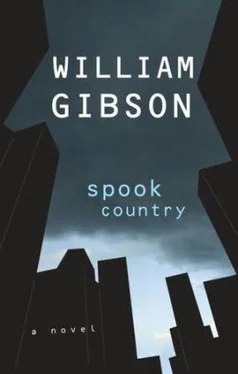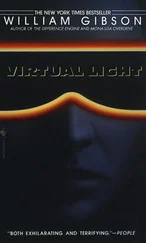Alejandro, who had never been interested in Tito’s music, looked at him now, his brow smooth between shoulder-length, center-parted hair, said nothing, and carefully ladled soup, first into Tito’s bowl, then into his own. The world outside the restaurant’s windows, beyond words in a red plastic Cantonese neither of them could read, was the color of a silver coin, misplaced for decades in a drawer.
Alejandro was a literalist, highly talented but supremely practical. This was why he had been chosen to apprentice under gray Juana, their aunt, the family’s master forger. Tito had lugged ancient mechanical typewriters through the downtown streets for Alejandro, impossibly heavy machines purchased in dusty warehouses beyond the river. He had run errands for their inked-cloth ribbons and the turpentine Alejandro used to wash out most of their ink. Their native Cuba, Juana taught, had been a kingdom of paper, a bureaucratic maze of forms, of carbon copies in triplicate—a realm the initiate might navigate with confidence and precision. Always precision, in the case of Juana, who had herself been trained in the white-painted subbasements of a building whose upper stories afforded narrow views of the Kremlin.
“He frightens you, this old man,” Alejandro said.
Alejandro had learned Juana’s thousand tricks with papers and adhesives, watermarks and stamps, her magic in improvised darkrooms, and darker mysteries involving the names of children who had died in infancy. Tito had sometimes carried, for months on end, decaying wallets bulging with fragments of the identities Alejandro’s apprenticeship had generated, prolonged proximity to his body removing every trace of the new. He had never touched the cards and folded papers the heat and movement of his body sueded so convincingly. Alejandro, removing them from their stained envelopes of dead man’s leather, had worn surgical gloves.
“No,” Tito said, “he doesn’t frighten me.” Though really he wasn’t sure; fear was a part of it, but he didn’t seem to fear the old man himself.
“Perhaps he should, cousin.”
The strength of Juana’s magic had faded, Tito knew, amid new technologies and an increasing governmental stress on “security,” by which was meant control. The family relied less now on Juana’s skills, obtaining most of their documents (Tito guessed) from others, ones more attuned to present needs. Alejandro, Tito knew, was not sorry about this. At thirty, eight years older than Tito, he had come to regard life in the family as at best a mixed blessing. The drawings Tito had seen, taped to fade in sunlight against the windows of Alejandro’s apartment, were a part of this. Alejandro drew beautifully, seemingly in any style, and there was an understanding between them, unspoken, that Alejandro had begun to carry the subtleties of Juana’s magic uptown, into a world of galleries and collectors.
“Carlito,” Alejandro named an uncle now, carefully, passing Tito a small white china bowl of greasy, scented warmth. “What has Carlito told you about him?”
“That he speaks Russian.” They were speaking Spanish. “That if he addresses me in Russian, I may reply in Russian.”
Alejandro raised an eyebrow.
“And that he knew our grandfather, in Havana.”
Alejandro frowned, his white china spoon poised above his soup. “An American?”
Tito nodded.
“The only Americans our grandfather knew in Havana were CIA,” Alejandro said, more softly now, though there was no one else in the restaurant other than the waiter, who was reading a Chinese weekly on his stool behind the till.
Tito remembered going with his mother to the Chinese cemetery behind Calle 23, shortly before he had come to New York. Something had been retrieved from an ossuary there, one of the small houses of bones, and Tito had delivered this elsewhere, proud of his tradecraft. And in the reeking toilet behind a Malecon restaurant he had flicked through the papers, in their mildewed envelope of rubberized fabric. He had no idea what they might have been, now, but he knew they had been typed in an English he’d scarcely known how to read.
He had never told this to anyone, and now did not tell Alejandro.
His feet, in black Red Wing boots, were very cold. He imagined himself slipping luxuriously into a deep Japanese bath of this same duck soup. “He looks like the men who used to stand in the hardware stores along this street,” he said to Alejandro. “Old men in old coats, with nothing else to do.” The hardware stores of Canal were gone now, replaced by cellular shops and counterfeit Prada.
“If you were to tell Carlito that you had seen the same van twice, or even the same woman,” Alejandro told the steaming surface of his soup, “he would send someone else. The protocol demands it.”
Their grandfather too was gone, the author of that protocol, like those old men along Canal Street. His complexly illegal ashes had been flung, one chilly April morning, from a Staten Island Ferry, the uncles shielding ritual cigars against the wind, while the vessel’s resident pickpockets hung well back, away from what they rightly perceived to be a most private activity.
“There has been nothing,” Tito said. “Nothing to indicate any interest.”
“If someone pays us to pass this man contraband—and by the nature of our business we pass nothing else—then someone else is surely interested.”
Tito tested the joints of his cousin’s logic, finding them sound. He nodded.
“You know the expression ‘get a life,’ cousin?” Alejandro had switched to English. “We all need lives, Tito, eventually, if we’re to stay here.”
Tito said nothing.
“How many deliveries, so far?”
“Four.”
“Too many.”
They ate their soup in silence then, hearing trucks rumble over metal, along Canal.
LATER TITO STOOD before the deep sink in his single tall room in Chinatown, washing winter socks with Woolite. Socks were no longer quite so foreign in themselves, but the weight of these, wet, still amazed him. And still his feet were sometimes cold, in spite of a variety of insulated insoles from the surplus store on Broadway.
He remembered the sink in his mother’s apartment in Havana. The plastic bottle filled with the henequen sap she used as a detergent, the pad of coarse fibers from the interior of the same plant, and a small can of charcoal. He remembered the tiny ants, speeding along the edge of his mother’s sink. In New York, Alejandro had once pointed out, ants moved much more slowly.
Another cousin, relocated from New Orleans in the wake of the flood, had spoken of seeing a swarming, glittering ball of red ants in the water. This was how ants avoided drowning, it seemed, and Tito, hearing the story, had thought that his family was like that as well, afloat in America, less numerous but supported by one another on their invisible raft of tradecraft, the protocol.
Sometimes he watched the news in Russian, on the Russian Network of America, on his Sony plasma screen. The voices of the presenters had begun to acquire a dreamlike, submarine quality. He wondered if this was what it felt like, to begin to lose a language.
He rolled his socks, squeezed water and suds from them, emptied and refilled the sink, put them back in to rinse, and dried his hands on an old T-shirt he used as a towel.
The room was square, windowless, with a single steel door and white-painted plasterboard walls. The high ceiling was raw concrete. He sometimes lay on his mattress, staring up, and traced the edges of vanished sheets of plywood there, fossil impressions dating from the pouring of the floor above. There were no other live-in residents. His floor-neighbors were a factory where Korean women sewed children’s clothing, and another, smaller firm, something to do with the Internet. His uncles held the lease here. When they required a place to do certain kinds of business, Tito sometimes slept at Alejandro’s, on his cousin’s Ikea couch.
Читать дальше










